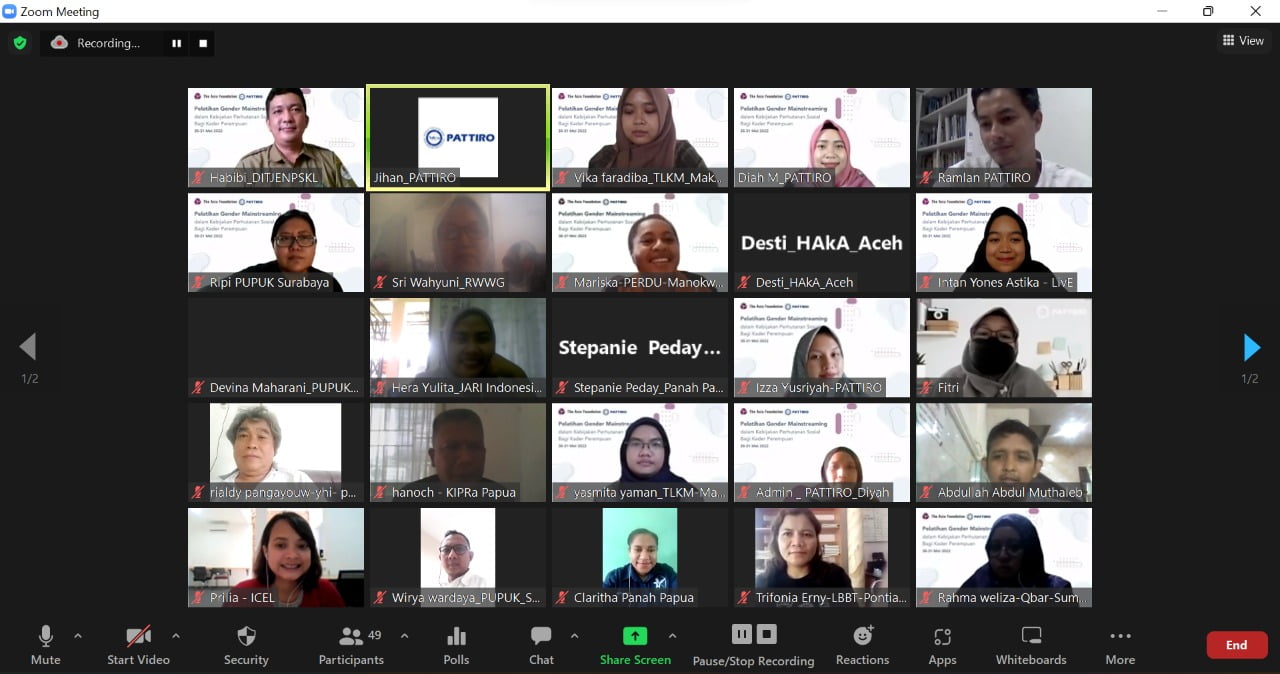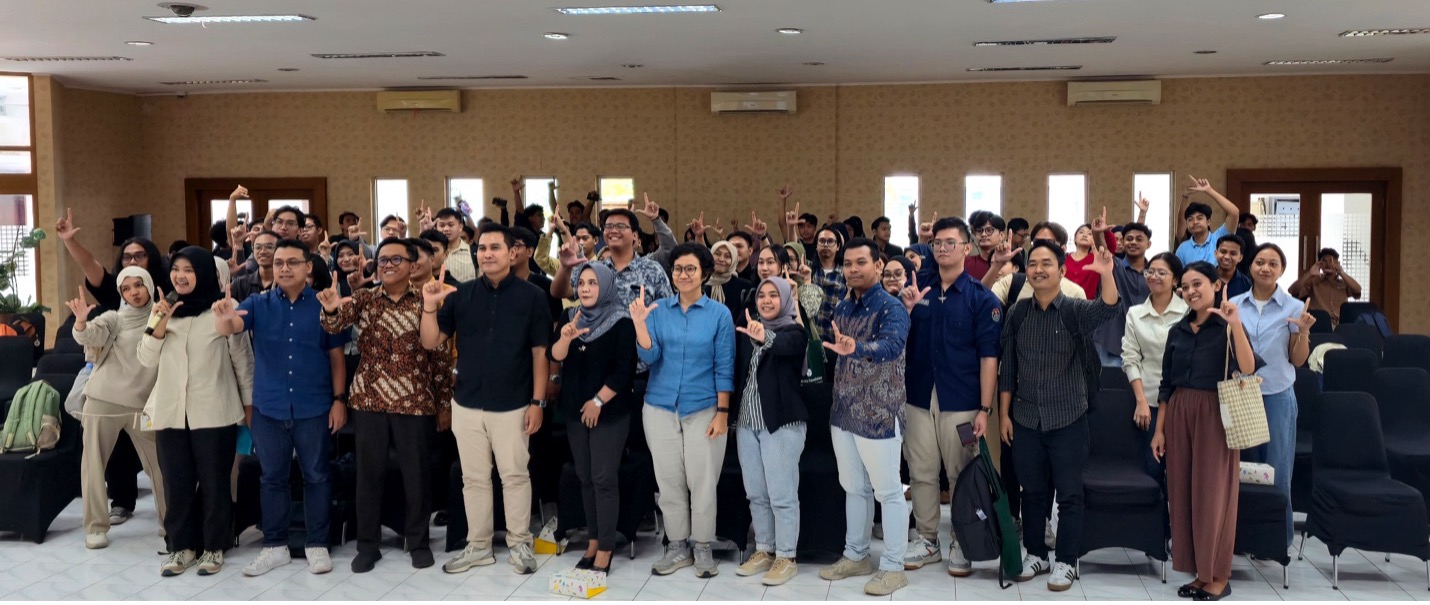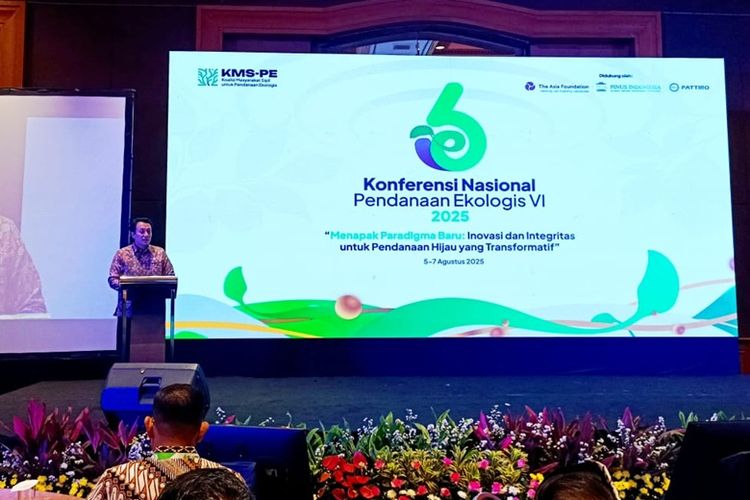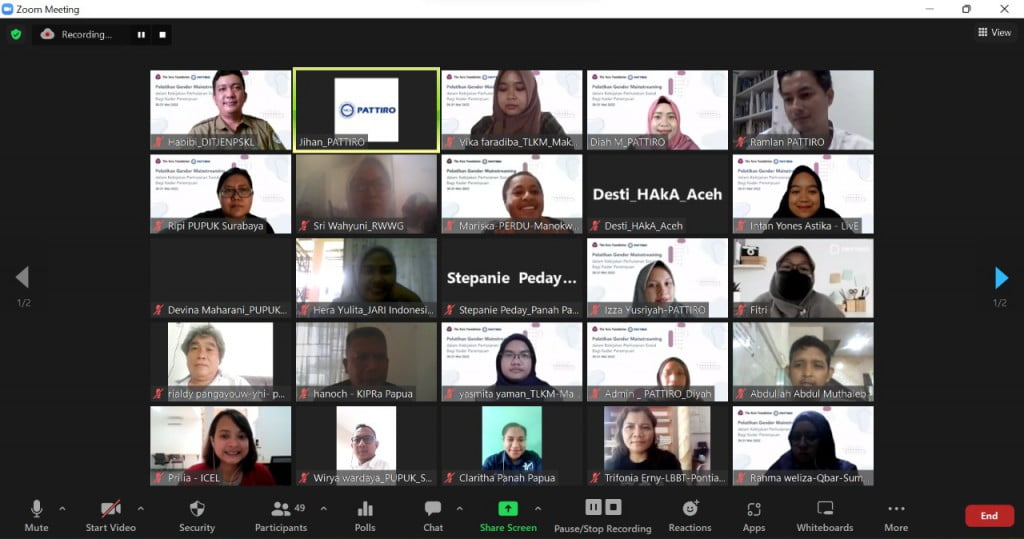
PATTIRO supported by The Asia Foundation held a training on gender mainstreaming in Social Forestry on Monday-Tuesday (30-31/6). The training was held online and attended by around 40 people from 21 civil society organizations from various regions in Indonesia. This training aimed to improve participants’ understanding of gender concept in general and ability to identify gender issues in Social Forestry, both in terms of policy and all stages. Identification of gender issues is done by using the Gender Assessment Tools (GAT) instrument that has been developed by PATTIRO previously.
This training was opened with a talk show to dissect the gender perspective in the Minister of Environment and Forestry Regulation No. 9 of 2021 on Social Forestry Management. Secretary of the Gender Mainstreaming Working Group of the Directorate General of Social Forestry and Environmental Partnership (Pokja PUG Ditjen PSKL), Habibi, S.Hut., MM, who was present as a resource person emphasized that gender perspective is an important issue and is considered in making development policies within the scope of DG PSKL, especially in Social Forestry. The hope is that the policies issued can accommodate gender justice and become a solution to gender inequality and disparity in development. At present, DG PSKL has issued various policies related to Social Forestry that have accommodated gender mainstreaming, including Decree of DG PSKL No. SK.28/PSKL/SET/OTL.0/12/2017 and Decree of DG PSKL No. SK.9/PSKL/SET/REN.0/2/2021 which encourages increasing the quantity and quality of gender mainstreaming in the implementation of Social Forestry policies and programs.
Moving on to the training agenda, PATTIRO’s facilitator, Yulius Hendra Hasanuddin, invited the participants to equalize their understanding of the gender perspective referred to in the training. Related to this, it is necessary to discuss gender mainstreaming, gender gap situation, and gender gap in natural resources management, especially Social Forestry. In addition, Yulius also shared examples of PATTIRO’s study results related to gender gap issues in West Nusa Tenggara Province as an illustration for the participants. The GAT instrument will also be a tool for participants in conducting research related to gender mainstreaming in Social Forestry.
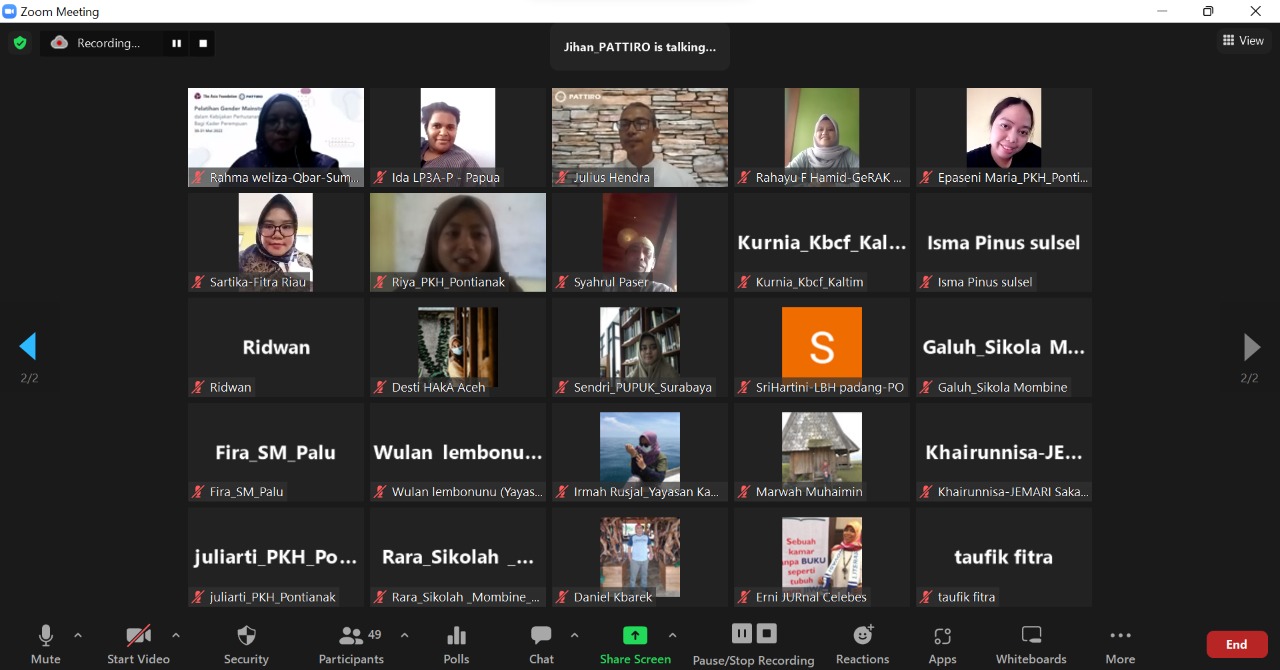
In the second day, the training was organized in the form of group discussion. Each participant shared their experiences in mentoring in their respective assisted areas related to encouraging gender-responsive Social Forestry programs. Several participants pointed out that in practice in the field, men still dominate in the Social Forestry program. Hera from JARI West Borneo said that forest cultivation is still dominated by men and the Forest Management Unit (FMU) has not provided assistance related to gender mainstreaming for this issue.
“Regarding the data on cultivators, we encourage women’s groups to be involved and the problem of cultivation is predominantly male. This becomes a big challenge, sometimes the management is all male, and there is no assistance from the KPH regarding gender mainstreaming,” Hera further said.
Rialdy from the Yayasan Harapan Ibu (YHI) Papua organization added that women’s subordinate position in forest management occurs due to the prevailing social structure in the community. “Women’s involvement in managing forest areas is very small because forests are controlled by tribal chiefs who are men,” Rialdy added. Rialdy said, however, that the church can encourage women to get involved because the church has considerable influence. “The church can even push the PERDA to involve women,” said Rialdy.
Intan from LiVE Bengkulu also shared her experience in encouraging gender mainstreaming in Social Forestry. She said the process began with looking at the Indicative Map of Social Forestry Areas (PIAPS) data and coordinating with the FMU. Afterwards, they coordinated with village governments whose areas were included in PIAPS, to propose an agenda for community empowerment through Social Forestry including encouraging women’s involvement.
“We also try to meet with tenant communities from women’s groups and encourage them to jointly record who is working on the land in the area,” added Intan.
This training was closed by briefing participants to collect further data on gender issues in Social Forestry. The data will then be used as material for the gender mainstreaming process in Social Forestry in their respective assisted areas. (JD)

